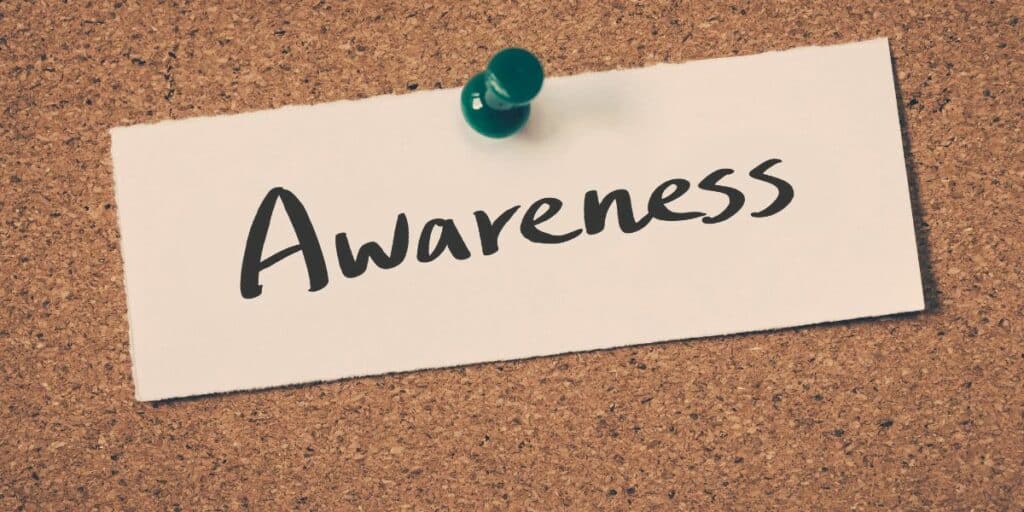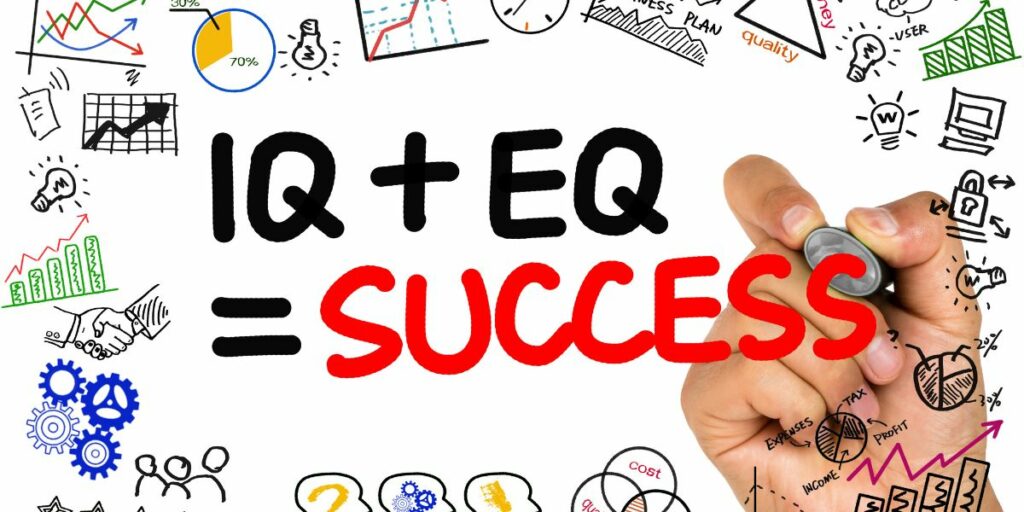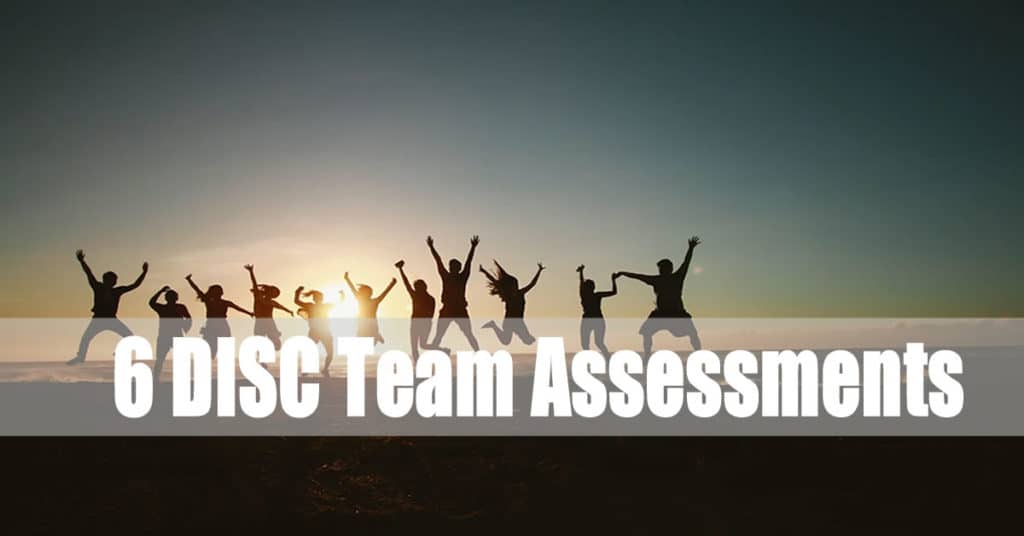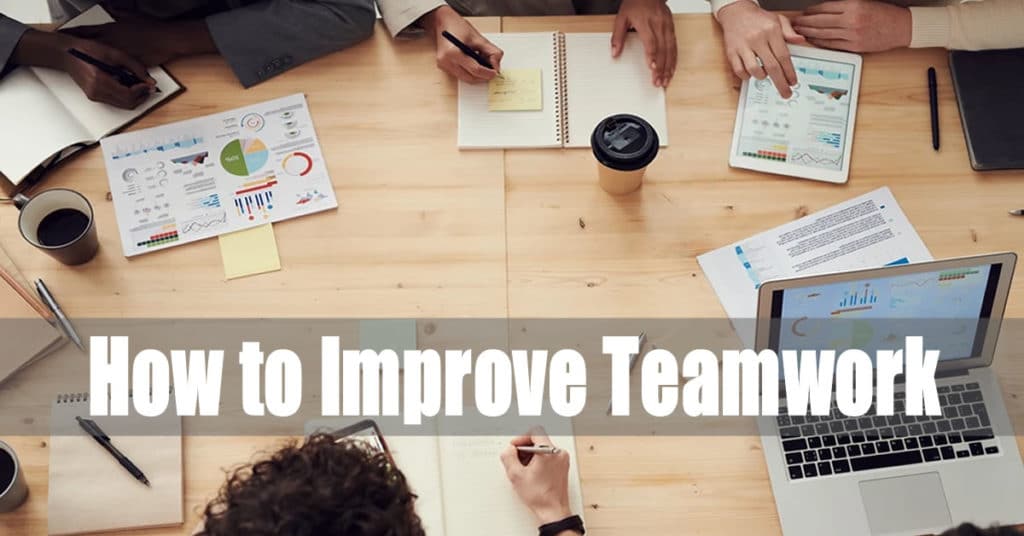Emotional Intelligence (EQ) made a huge splash when the topic was featured on the cover of TIME Magazine in the mid 90s. People thought, “What is EQ? Do I have EQ? And if I don’t have it, how do I get it??” The good news is EQ is like a muscle and can become developed once you’ve identified the domain(s) that you should work on.
From discovering emotional intelligence to developing emotional intelligence and now even team emotional intelligence, Cooper Consulting Group has a wide variety of EQ assessments and programs offered.
A recent HBR article shows that we now have up to six generations working together in the workforce. EQ is needed now more than ever.
Understanding Emotional Intelligence
The 4 Core Emotional Intelligence Domains
While there are many EQ frameworks proposed by various authors and researchers. One of the most widely used frameworks is from the work of Daniel Goleman, Izzy Justice, Travis Bradbery, and Dr. Jean Greaves.
In Bradbery and Greaves book, Emotional Intelligence 2.0 they propose four main EQ domains: self-awareness, self-management, social awareness, and relationship management.

Self-awareness is the ability to understand one’s own emotions as they are happening. Self-awareness is the foundation that all leaders must have. Just like the famous Aristotle quote, “know thyself.” Understanding oneself is vital. Becoming aware of the things we are not aware of…is critical to the success of a leader. While a leader may say they are self-aware, research would show only about 10 to 15% of leaders are truly self-aware.
Three highly valuable questions a leader should ask themselves to become more self-aware are:
- What am I experiencing right now?
- Why am I experiencing that?
- How is it impacting me and my ability to perform?

The second domain of EQ is self-management, or the ability to manage one’s emotions and tendencies to a positive outcome. While a person cannot stop an emotion from happening, we can manage that emotion to a positive outcome.
My mom who is fast approaching her 79th birthday is now in a skilled nursing facility. And this brings back memories of a time when I was a child and had to visit my grandfather in a nursing home. The smell is not always pleasant in these facilities and well people minds and bodies are or have failed them due to the aging process. Personally, I am on a roller coaster ride every time I go to visit my mom. I get in my car to drive to her, and I feel heartbroken she broke her leg which put her in a skilled nursing facility. I then move to feeling frustrated and annoyed that while her leg healed she thinks she cannot walk now and therefore she does what she thinks she can’t do. I get skeptical of the staff, with the physical therapist having told her she didn’t think doing PT would help her to walk. Then I find myself annoyed at my mom she isn’t trying hard enough (yes, I know she is 79!). I just feel helpless in the situation that I cannot do anything to get her to walk. Then I walk into my mom’s room and try to put on a cheerful smile to greet her.
In the span of 10-minutes I have gone through just seven emotions I have listed out here and I am sure there is more if I really thought about it more. It is up to ME, to manage my emotions to that “positive outcome.” No one can do it for me. It’s a challenge every time I go see her. I have my own negative self-talk going on in my head. Managing negative self-talk is an aspect of self-management. If I practice what I teach, I should consider not discounting the positives (see the chart below).
| TYPE OF SELF TALK | WHAT IT IS | INSTEAD THINK… |
| Overgeneralizing | A single event becomes “I always” or “I never” | Situation specific |
| Discounting the positives | Ignore all the good and dwell on the bad. “Does this make me look…” | Count the positives- wo-hoo! |
| Labeling | A negative, permanent trait. “I am an idiot.” | It was just a mistake |
| Personalizing | Concluding that I am always responsible for anything that happens. | It’s not all me |
| Blaming | Concluding that everyone else is responsible for anything that happens. | I had a part in it too |
| Polarizing | Thinking everything is either right or wrong; good or bad; perfect or failing. | See the gray area |
| Magnifying | Making more of an event that it actually is. “Making a mountain out of a molehill.” | Interpret the event realistically |
There are five self-management strategies that people can do:
- Don’t ignore what is happening
- Admit what is happening
- Slow down and breathe
- Buy some time to think
- Use positive self-talk
The brain is wired to protect us and the brain can create new neural pathways by using positive self-talk on a consistent basis to replace the negative thought. This takes discipline and consistency.
Three important questions to ask yourself about self-management are:
- What could (or should) I do with/about what I am experiencing?
- Why should or shouldn’t I do that?
- How can I appropriately express or impact what I am experiencing?

The third domain is social awareness, which is the ability to understand others’ emotions and tendencies as they happen. This makes me recall Rosa Parks. Rosa Parks became a civil rights activist. She showed an act of defiance on December 1, 1955 in Montgomery, Alabama. She sat in the “white section” of the bus and said NO MORE. While some might say she was defiant, she was a role model of social awareness. She understood what it meant to be black. She understood the rules that were placed on black folk. “Other” people could have shown more discretion about social awareness toward blacks. So, in a sense, being socially aware sometimes means taking a stance and meeting people where they are and being empathetic towards others.
Three good questions to ask yourself about social awareness are:
- What is the other party experiencing in this situation?
- Why might they be experiencing that?
- How will it impact their ability to perform?

The fourth domain of EQ is relationship management. According to Bradbery and Greaves this means, “are my needs being met…are your needs being met…and are the needs of the situation/organization being met?” In other words, can I manage the interactions I have with others constructively and to a positive outcome? In our emotional intelligence workshops, we share what the conflict code is and how to break it.
Having low relationship management might look like this:
- Talks down (condescending) toward others
- Being the non-designated spokesperson
- Poor speaking skills
- Blocker to change
- Does not develop others
Three great relationship management strategies are:
- Be open & be curious
- Avoid giving mixed signals
- Take feedback well
In our workshops we will provide you with a plethora of strategies for each of the above domains in our highly sought after Emotional Intelligence Quotient Report. This short 14-page report packs a powerful punch, filled with a two-page overview of your general characteristics as it relates to EQ, along with dozens of tips and strategies to enhance your emotional intelligence.
The Role of Emotional Intelligence in Organizations
Boosting Productivity
If your teams are tackling challenges with conflict, change, growth, innovation, morale, productivity, quality results, stress, speed, or service, then your teams need Mastering EQTM for Teams training.
Benefits include:
Improved Team Performance. Make certain that your team establishes norms that will boost team performance in the areas that matter to your organization.
Positive Relationships. Practice team EQ strategies that will help team members foster relationships with each other and those outside the team
Emotion Awareness and Management. Delve into the role emotions play within the team and how to maximize team member strengths to manage the impact of negative emotions.

Enhancing Team Engagement and Resilience
In this in-person or virtually led half-day session for intact teams, discover the role that emotions play in team performance. Learn 53 Team EQ strategies and create a team action plan to develop your team’s EQ and improve how you work together within your team, and how your team works with others at your organization.
Other benefits you could expect are:
- Drives team business objectives and improves performance of intact teams.
- Increases Team EQ development through engaging and relevant exercises and discussions in-session.
- Increased EQ throughout your organization.
- Continued Team EQ development through Team Action Plan.
- Improved work culture, job satisfaction, and increased retention among intact teams.
- Developed team EQ skills that allow intact teams to become more efficient and effective on the job.

How to Improve Emotional Intelligence
Attending Emotional Intelligence Training
Our EQ training is one of our most popular workshops. We can conduct an EQ Insight session (90-minutes) to a ½ day, full day or two-day session. We do virtual sessions and in-person sessions serving clients world-wide (even Greenland!!!). Our team are all certified in a variety of Emotional Intelligence instruments. We can even certify your team to become an Emotional Intelligence Certified Trainer—and we sell assessments for your use too!
Utilizing Emotional Intelligence Coaching
Working with a coach can provide you faster results to achieve your goals. We have a team of coaches, with varied backgrounds that can be an excellent resource to use. Our most popular coaching track is our Signature Series which is generally over a 6 to 8-month time period and has 12 to 16-hours. We use a battery of assessments, including an Emotional Intelligence assessment.
Conclusion
Emotional Intelligence training has been proven by many research studies to increase a variety of soft skills such as, decision-making, presentation skills, managing conflict and change, stress management, and more.
Whether you are an individual or a leader, we can customize a program to meet your specific goals and objectives. You can also go HERE to download our complimentary Emotional Intelligence e-book.



